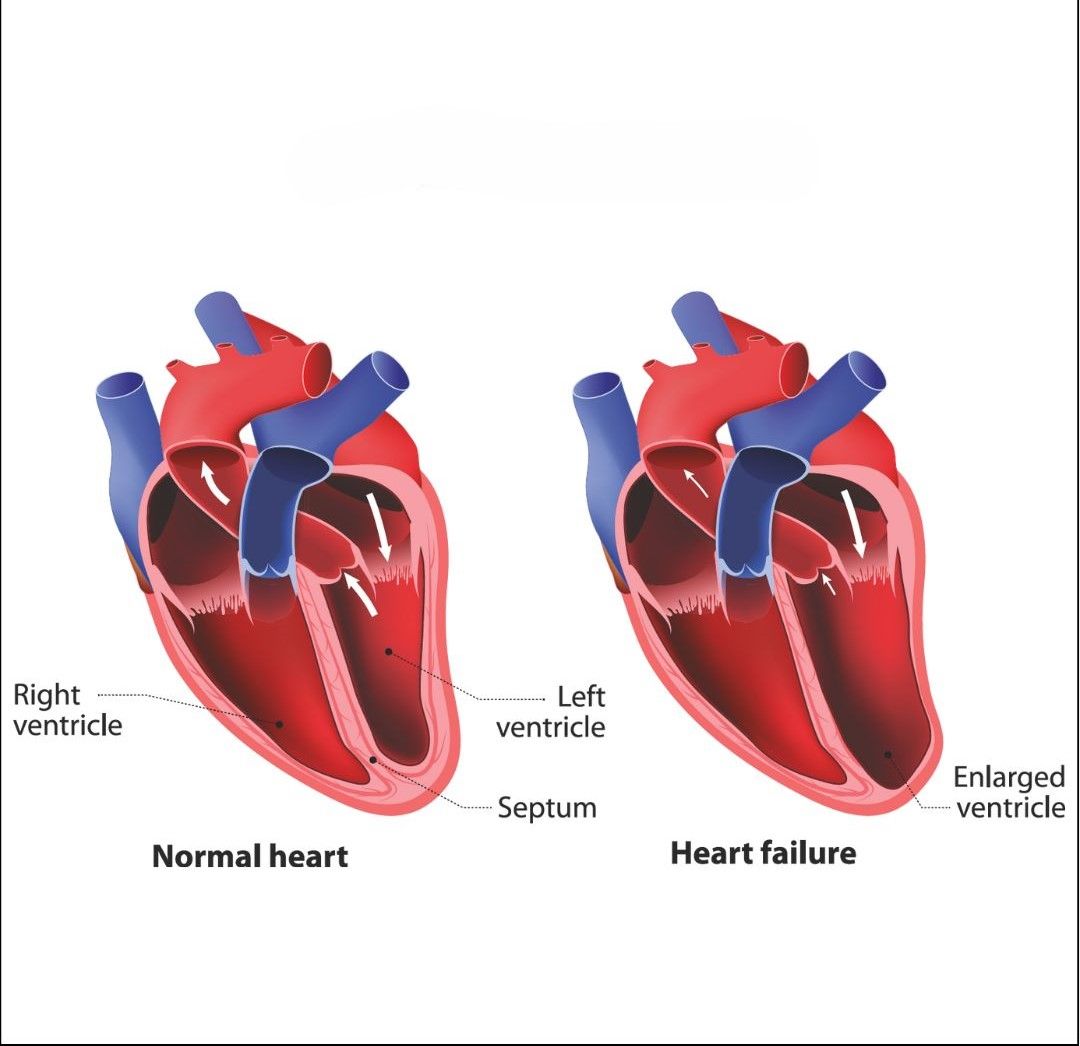What Causes It?
Coronary artery disease - Narrowed arteries that supply blood to the heart muscle.
Heart attack - Damage to the heart muscle from previous heart attacks.
Hypertension - Long-term high blood pressure forces the heart to work harder.
Valve disease - Damaged heart valves make the heart work harder to pump blood.
Cardiomyopathy - Disease of the heart muscle itself, sometimes genetic or from toxins.
Myocarditis - Inflammation of the heart muscle, usually caused by infection.
Congenital heart defects - Heart problems present at birth.
Arrhythmias - Abnormal heart rhythms that affect efficient pumping.
Diabetes - Can damage blood vessels and the heart muscle over time.
Obesity - Increases the risk of heart disease and makes the heart work harder.
Severe lung diseases - Like COPD or pulmonary hypertension that affect heart function.
Substance abuse - Alcohol, tobacco, or recreational drugs can damage the heart.
Certain cancer treatments - Some chemotherapy drugs and radiation can damage the heart.
Signs & Symptoms
Shortness of breath (dyspnea) - During activity, at rest, or while lying flat.
Fatigue and weakness - Making daily activities difficult.
Swelling (edema) - In the legs, ankles, and feet due to fluid buildup.
Rapid or irregular heartbeat - Feeling like your heart is racing or throbbing.
Reduced ability to exercise - Due to shortness of breath and fatigue.
Persistent cough or wheezing - Sometimes with white or pink blood-tinged mucus.
Increased need to urinate - Especially at night.
Sudden weight gain - From fluid retention.
Lack of appetite, nausea - Feeling full or sick to your stomach.
Difficulty concentrating or decreased alertness - Due to changing levels of substances in the blood.
Chest pain - If heart failure is caused by a heart attack.
Abdominal swelling - Due to fluid buildup in the abdomen (ascites).
